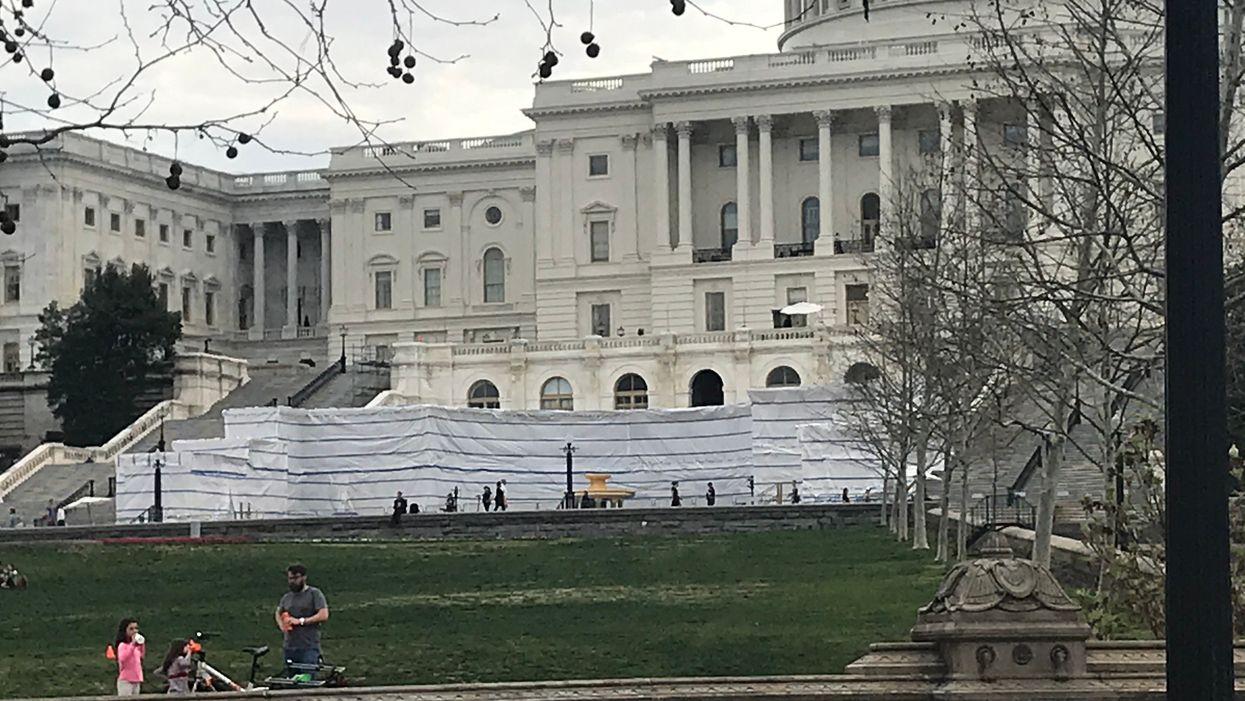Galen is an independent political consultant and advisor to The Lincoln Project, an organization of conservatives working for President Trump's defeat. He has been active in the electoral reform movement since 2016.
The coronavirus pandemic has affected every part of our lives. We've seen shelter-in-place orders, schools dismissed, and restaurants and shops shuttered. Every day we see new examples of Americans doing their part in the face of a crisis no one could have predicted and too many of our institutions did too little to prepare for.
Our elections are a prime example. In just the past few weeks we've seen primary and special elections postponed in the interest of social distancing and public health. Maryland, Kentucky, Georgia and Louisiana have pushed voting until later in the spring or summer. While this may provide a small hiccup for the Democratic presidential campaign, these decisions were prudent.
Ohio, which was slated to vote Tuesday, called a halt to the primary just hours ahead of time. On its face, Gov. Mike DeWine's request for a state judge to intervene and halt polling makes sense given the universal admonition not to gather in large groups.
However, when the court refused, DeWine's public health director canceled the election unilaterally, citing the coronavirus. Given that neither the governor nor the General Assembly had statutory authority to do so, DeWine used a legal end-around to achieve an otherwise reasonable goal.
This willingness and ability to use such extraordinary authority is concerning for several reasons.
First, when left with no other option, DeWine found the fastest and most efficient means necessary to take an action for which he didn't otherwise have authority. Indeed, incredible times sometimes call for incredible measures, but the ability of an executive to take unilateral action — especially when it concerns voting — is an uncommon act in America, to say the least.
This leads to the next issue: Other governors and state elections officials view DeWine's action — and the lack of reaction from the Legislature, the media or the people — as a precedent for taking similar action should they deem it necessary and appropriate. Given this hyper-polarized moment, we should insist that leaders of both parties commit publicly to not taking actions that will adversely affect their political opponents.
Lastly, and perhaps most concerning, is that President Trump, given his ignorance and disdain for both law and tradition, will attempt to utilize a similar "public health emergency" declaration to cancel elections in November. This must not be allowed to happen.
Although this week Trump said he didn't believe it was necessary to postpone other primary elections, we should not take that, or anything he says, as a blanket statement. Given the president's predilection for saying whatever comes to mind or is the most expedient, it is not beyond the realm of possibility to see him leaning into a "cancel the election" stance and pressuring Republican governors and secretaries of state to go along with his wishes.
To prevent such an outcome, elections officials, both in the statehouses and the counties, need to immediately begin preparing for more flexible means of allowing voters to participate this fall. The good news is that most of the infrastructure already exists to make this a reality.
All states provide for at least some voting using an absentee, mail-in ballot. They are split about evenly between those that require some sort of reason (illness, military service, planned travel or advanced age) and those that provide the option to any registered voter who asks. Washington, Oregon, Colorado, Utah and Hawaii are the standouts — because in those five states ballots and return envelopes will be proactively sent to every voter for use in the general election.
Given most states' abilities and the traditions of issuing absentee ballots, elections officials should immediately begin the process of determining how best to ensure every voter can participate — either in person or at home in November. Most state ballots are not finalized until late August or early September; this should be sufficient time for county officials to organize printing and delivery.
While they are preparing to allow people to vote from their homes, states must also work with civic groups such as the League of Women Voters and other electoral reform groups to accomplish several key objectives.
Initially, states will need to implement a public service campaign to inform the electorate that the state will be moving to mail-in or all-absentee balloting. This must include resources, both mail and digital, that ensure voters clearly understand how to vote their ballot at home.
Given that many poll workers and election judges are older Americans, states must begin a recruitment drive for new poll workers and election judges. Younger Americans should take up the mantle of protecting the integrity of our elections from their parents and grandparents.
Lastly, there must be a concerted and coordinated campaign by us, the American people, to demand these changes and reforms be put in place as soon as possible. With the help of many national, state and local reform groups, we can ensure that come Nov. 3, every American voter's voice is heard.



















